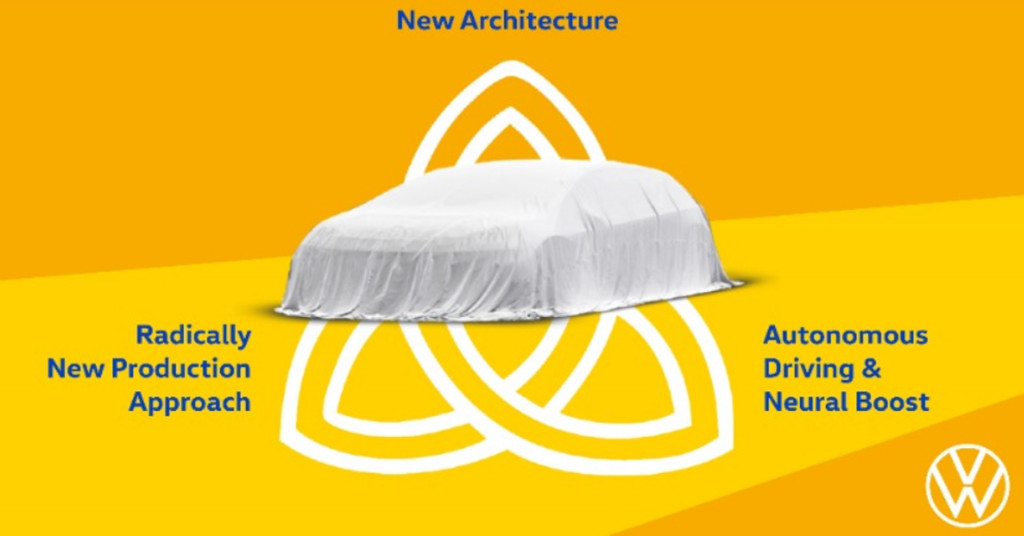Volkswagen Group in late 2020 first hinted at plans for an electric vehicle from its Volkswagen brand to be built using highly automated production methods, which are being developed with a view to improve efficiencies and reduce costs across the automaker's plants.
Referred to by the code name Project Trinity, chosen because of the three main tenets the car represents, specifically a new platform, new production processes, and self-driving technology integrating artificial intelligence, the Project Trinity is confirmed to arrive in 2026 and will be the first vehicle built at a state-of-the-art plant to be constructed in VW's home in Wolfsburg, Germany.
VW brand boss Ralf Brandstaetter provided a few details in an interview with Germany's Welt Am Sonntag published last year. He said the Project Trinity would be priced to start at about 35,000 euros (approximately $37,000) and sit in a similar segment to the Tesla Model 3. A teaser sketch released about the same time (shown main) reveals the car as a sleek sedan or hatchback.
Citing anonymous insiders, Autocar reported on Thursday that the Project Trinity will be a hatch and feature an ID.4 badge, meaning it will be part of an expanded ID.4 family that will include an updated version of the current ID.4 small crossover.

Volkswagen Project Trinity: Battery-electric technological flagship in the works
The Project Trinity won't ride on the MEB platform underpinning the current ID.4, though. Instead, it will be the first model based on a highly standardized platform known as the SSP (Scalable Systems Platform). The platform will standardize not only structures but also battery cells and software, and could eventually end up underpinning most of the vehicles across the VW Group brand portfolio.
One key change with SSP will be a switch to an 800-volt electrical system from the MEB's 400-volt system, according to Autocar. This would enable faster charging times than what's possible with the MEB platform.
Software, including self-driving technology, will also be a defining feature of the Project Trinity, and future vehicles from VW Group. Look for over-the-air updates, functions on demand, vehicle-to-everything (V2X) communications, and an in-house operating system to be known as VW.OS, which is currently being developed by VW Group's Cariad software division.
When it comes to self-driving technology, VW has said the Project Trinity will be technically ready for Level 4 on the SAE scale of self-driving capability, but won't have this capability at launch. Level 4 implies a vehicle that can handle itself on its own, albeit only in set conditions, the usual one being a geofenced area with sufficient map data. A driver will be required to take back control outside of the set conditions, which is similar to a Level 3 car. However, a Level 4 car has the extra capability that it can come to a safe stop should a driver fail to take back control. The ultimate goal is a Level 5 car which will be able to handle all the same conditions expected of a human.
